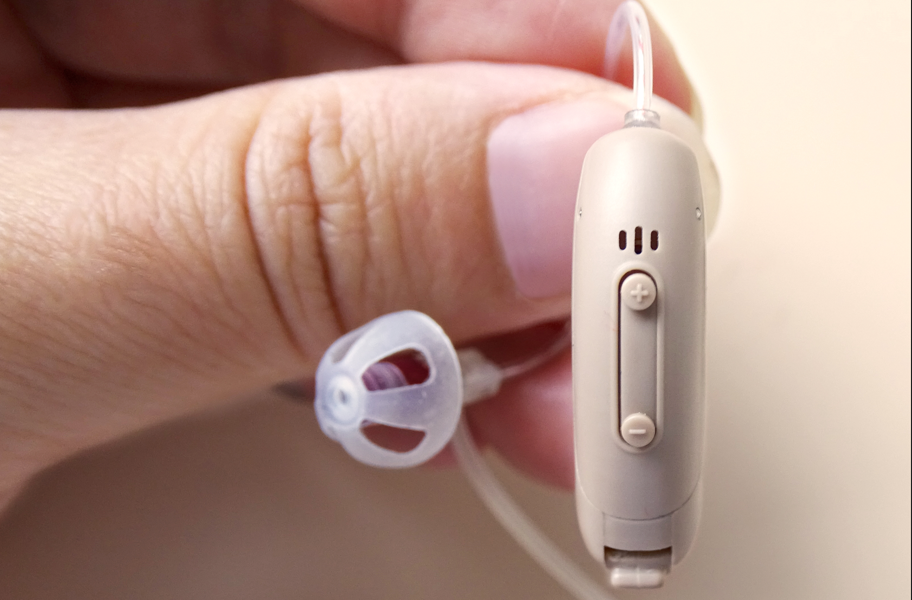Are you struggling with the efficiency of your hearing aid usage? The problem of a weak hearing aid can often be solved by taking a few simple steps, such as regularly cleaning the hearing aid’s filter to prevent waxy build-up, checking and replacing the battery, keeping the device away from water and moisture, and scheduling periodic hearing tests to detect any potential changes in sensitivity. Over time, users might also need more amplification, which can be adjusted with the help of an audiologist. By following these tips, you can optimize your hearing aid’s performance and keep your hearing sharp.
Check the Hearing Aid’s Speaker / Receiver
With brand-new hearing aids, without any incidents happened to the hearing aids, the hearing aid’s receiver / speaker clogs with ear wax are the most common issue. On top of the receiver most of the time, there is a little white piece of a filter. The purpose of the filter is to prevent any wax from getting down to the speaker. If wax, debris, or dry skin gets down to the speaker, you the patient would most likely feel the hearing aid sounds weak, sounds muffled, or it doesn’t work at all. If the hearing aid has been working perfectly fine, you the patient do not believe your hearing sensitivity has decreased, and no incidents happened to the hearing aid, most likely changing the hearing aid’s filter would resolve the issue.
Check the Hearing Aid’s Battery
Changing the hearing aid battery is an easy thing to do, and it is something that the hearing aid wearer does periodically and frequently. When something went wrong with the hearing aid, also don’t forget to change the battery, or check on the status of the battery. With traditional batteries, you would need to change them about once per week, and with rechargeable hearing aids, you would need to charge them every day. It takes about 3 – 4 hours to be fully charged, and once it is fully charged it would last you about 16+ hours. If you don’t charge the hearing aids every day, the hearing aid battery would most likely only last you until the mid-day of the following day.

Away from Moisture & Water
Hearing aids are electronic devices, and they should be away from moisture and water! If they accidentally got wet, just wipe it down with a dry tissue or a dry towel, nothing wet! Not even alcohol wipes. After wiping it down, if you still worry about it, you can place it in the hearing aid’s drying case or a cup of dry raw rice would also work.
Potentially Decrease in Hearing Sensitivity?
If you have hearing loss, you should have a hearing test done either once per year or at least once every other year. For example, if you had a hearing test done in 2023, if by 2024 you don’t perceive a decrease in hearing sensitivity you can skip a hearing test in 2024; however, by 2025, regardless of whether you noticed a change in hearing sensitivity or not, you should have another comprehensive hearing test done. By doing so if there is a change in your hearing sensitivity both you and your hearing professional would know as soon as possible. If hearing sensitivity changed, any settings that have previously been saved in the hearing aids would not be sufficient anymore, and re-programming or re-adjustments were needed by your audiologist.
You might be used to or adjusted to the hearing aid’s initial volume, and you are ready for more volume!
On average, it takes a person that has hearing loss about seven years for them to have their first ever hearing test, and seven years is almost a decade long, and that is a long time. For someone that has had hearing loss for nearly a decade long without receiving any treatments, they have been missing a lot of sounds. Due to this reason, when an audiologist fits an individual with their first ever set of hearing aids, a lot of time they don’t give the patient 100% of the amplification that they require, based on the individual’s hearing loss and the prescription in the programming software.

This is because the patient has been missing a lot of sounds for a long time. If the audiologist puts the patient 100% where they are supposed to be, the patient would most likely feel overwhelmed, and things sound too loud, especially when they are in noisy background situations. So the patient would most likely only get about 80% amplification initially; however, over time once the patient gets used to the initial volume, the patient would think that the hearing aids are not loud enough, and this is a good sign, a sign that they are ready for more and louder volumes, and they should go back to their audiologist’s office to have the hearing aids to be turned up and tuned.

